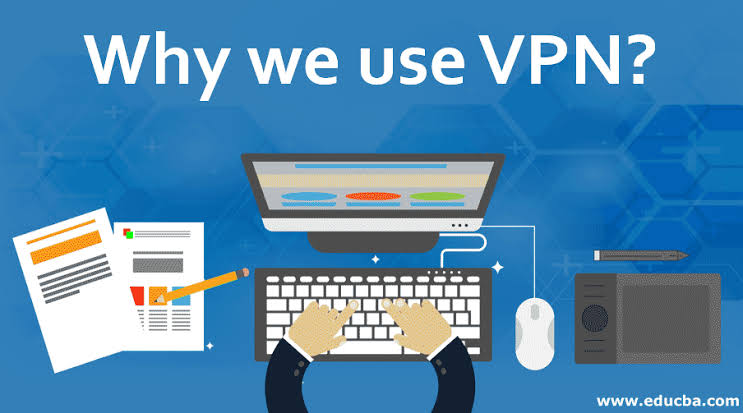VPNs are everywhere these days—almost like a fad. Everyone seems to be endorsing VPNs from gamers to people in business—and for a good reason. The world is moving at a fast pace—the kind of pace modern security measures can’t seem to keep up with.
With new technologies, apps, and tools coming out each passing day, hackers and cybercriminals develop new ways and methods of breaking into and exploiting them. This is why so many of the biggest companies in the world are getting hacked into.
From public Wi-Fi to office networks, nothing seems safe anymore—enter the world of VPNs. A USA VPN will let you ensure that you’re safe and secure online by letting you spoof your location to the USA—no matter where you are in the world.
Confused?
Let’s take it slow and talk a little about what VPNs are and what they do.
What is a VPN, and what does it do?
VPNs are cybersecurity tools that help users increase their online privacy by browsing the internet anonymously. They do this by letting users connect to the internet through remote and secure servers, temporarily replacing their IP addresses with those servers.
Once a user is connected through a VPN, they will be visible on the online landscape as a citizen of the country their VPN server is placed in—making it almost impossible to trace their online activities and behavior back to them.
Additionally, a VPN ensures that the entire communication between the user’s device and the internet is encrypted. Even if a hacker or a snooper manages to get into the data, they won’t understand what information is being exchanged.
This double-layered security makes VPNs great cybersecurity tools to work with—but that’s not all VPNs do. In this blog, we’re going to go over some more reasons why VPNs are helpful and why everyone should use them, but first, let’s go through the simple, 4-step method to install and use a VPN.
How to download and use a VPN
To download VPN, here are the steps you’ll need to follow.
- Select a VPN best suited to your needs and sign up for an account.
- Now, download the correct app for your device. It is super important to be careful of this because most good VPNs offer several different options for apps, each for a different device. This helps take care of individual security needs better.
- Once you have your application downloaded and installed, it’s now time to connect to a remote and secure server, go ahead and select any country from the drop-down menu. When you do this, your entire internet traffic will get routed through this remote server, and your IP address will be replaced by your server IP.
- By now, you’re fully anonymous online and can enjoy surfing and browsing safely!
Reasons to Use a VPN
Now that we have that out of our way, let’s talk about some of the most common reasons VPNs are the most important tool on all our devices today.
Security on public Wi-Fi
Everywhere we go, there is public Wi-Fi. From cafes to parks and now even shopping malls. We often don’t even think twice before connecting to the free Wi-Fi and enjoying the unlimited internet.
However, to keep in mind, public Wi-Fis can be dangerous. This is because they can give hackers easy and effortless access to all connected devices, often resulting in irrecoverable damage.
A VPN will allow you to safely connect to public Wi-Fi by hiding your true IP address.
Data and online privacy
As discussed before, VPNs are incredible tools for ensuring online privacy and data integrity with the double-layered security they offer.
Not only will these tools keep you safe from hackers and online attackers, but they will also keep you from getting tracked by third-party apps, advertising companies, your local internet service provider, and even the government.
Unblocking geo-barriers
Several websites and content platforms go through geo-blocking. This means some web pages, websites, and even content pieces are only available to a certain geographical demographic.
A VPN will let you bypass these geo-barriers by allowing you to connect through those countries and replacing your IP address with the IP of your VPN server.
Bypassing ISP throttling
Suppose you’ve noticed certain dips in your internet speed after you’ve downloaded a movie or enjoyed a long gaming session. In that case, your bandwidth is likely being throttled by your local internet service provider.
A VPN will mask your IP address and help you surf anonymously and privately, such that your ISP won’t be able to detect you to throttle your bandwidth.


